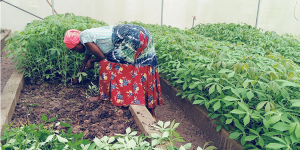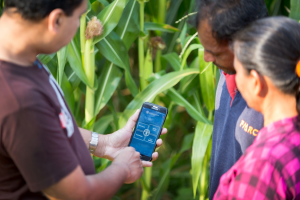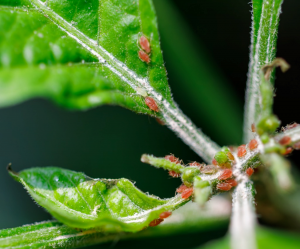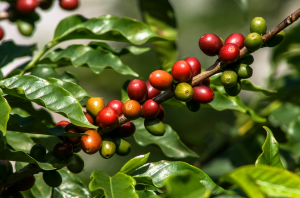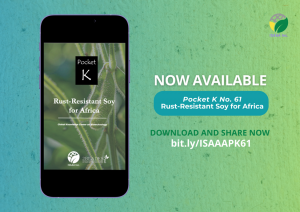The Ministry of Agriculture of Tanzania, in collaboration with the Tanzania Cassava Producers and Processors Association (TACAPPA), IITA, and AGRA – Sustainably Growing Africa’s Food Systems, organized a cassava business and investment forum in Dodoma on 29 April. The event aimed to engage stakeholders, especially private-sector cassava producers, seed producers, researchers, and policymakers, to foster insightful discussions on promoting cassava in food systems diversification, commercialization, and trade at national, regional, and international levels.
The Food and Agriculture Organization of the United Nations (FAO) is marking this year’s International Day of Plant Health by shining a light on the importance of leveraging innovation to protect plants, which are indispensable for sustaining life on earth. This year’s observance on May 12 focuses on the many innovations that cut across areas where plant health is crucial – such as plant pest monitoring to protect agricultural production – and digital systems to ensure the safe international trade in plants.
Scientists have discovered that a drought stress hormone of plants is used to block spider mites. Their findings may help with future crop breeding programs that seek to improve broad-scale pest management. Pests greatly affect the yield of crops, which causes plants to use defense mechanisms against these pests. However, spider mite causes quick damage and is hard to address because of its broad target range.
Kenya is seeking to strengthen its biosafety communication strategies in a bid to effectively combat biosafety-related misinformation and enhance public trust on science-based biosafety decisions. This emerged during a biosafety communication training held in Nairobi on May 2-3, 2024. Speaking during the workshop, Dr. Roy Mugiira, the Chief Executive Officer of Kenya's National Biosafety Authority (NBA) hinted that the Authority will soon roll out a new corporate communication strategy that recognizes the need to proactively reduce the harm of misinformation about biosafety issues.
ASCA7 targets to equip Asian scientists, regulators, and other stakeholders with the knowledge and skills to navigate the complexities of agri-biotech. The program focuses on three key areas: agri-biotech applications, policy environment, and biotech communication. This comprehensive approach empowers participants to contribute towards implementation of science-based regulations that support the commercialization and trade of agri-biotech products.
The increasing number of antimicrobial resistance (AMR) calls for an urgent need for innovative tools to combat AMR. In a presentation at the ESCMID Global Congress, Dr Rodrigo Ibarra-Chávez from the University of Copenhagen, Denmark, discussed how CRISPR technology can be used to modify and attack AMR bacteria. Their research involves developing guided systems to combat AMR genes, which are aimed to treat infections and halt the spread of resistant genes
An international team of researchers co-led by Nanyang Technological University, Singapore (NTU Singapore) has made a breakthrough to help protect Arabica plants against the fungal disease coffee leaf rust. Globally, Arabica coffee is the most economically important coffee, accounting for 60 percent of coffee products worldwide. Coffee leaf rust disease, caused by the Hemileia vastatrix fungi has wreaked havoc on coffee-producing farms worldwide.
A paper published in the Journal of Biotechnology highlights the need for combined organic farming techniques and modern biotechnology to meet increasing global food demands. The paper suggests neither method can address future food production challenges in isolation. Researchers from the University of Agricultural Sciences and Technology of Kashmir and the University of Oxford say that the way forward for a greener future is through the modernization of genetically modified (GM) agriculture.
ISAAA Inc., in partnership with 2Blades, released a Pocket K titled Rust-Resistant Soy for Africa, which is now available for free download from the ISAAA website. This publication provides bite-sized information about the transgenic soybean developed by 2Blades scientists to help address Asian soybean rust disease in Africa, particularly in Kenya.
The Food and Agriculture Organization of the United Nations (FAO) and the City of Rome (Roma Capitale) has further extended the Global Library of Trees and Flowers - FAO Park, by allowing visitors - the location is nestled in one of the Italian capital’s largest public parks, Villa Doria Pamphili - to follow an educational itinerary through a mobile application. Thanks to the FAO Park web app, which was inaugurated at a ceremony held today, it is possible to access interesting news and information about the various tree species located in the seven areas of the park,


 Curently online :
Curently online :
 Total visitors :
Total visitors :
